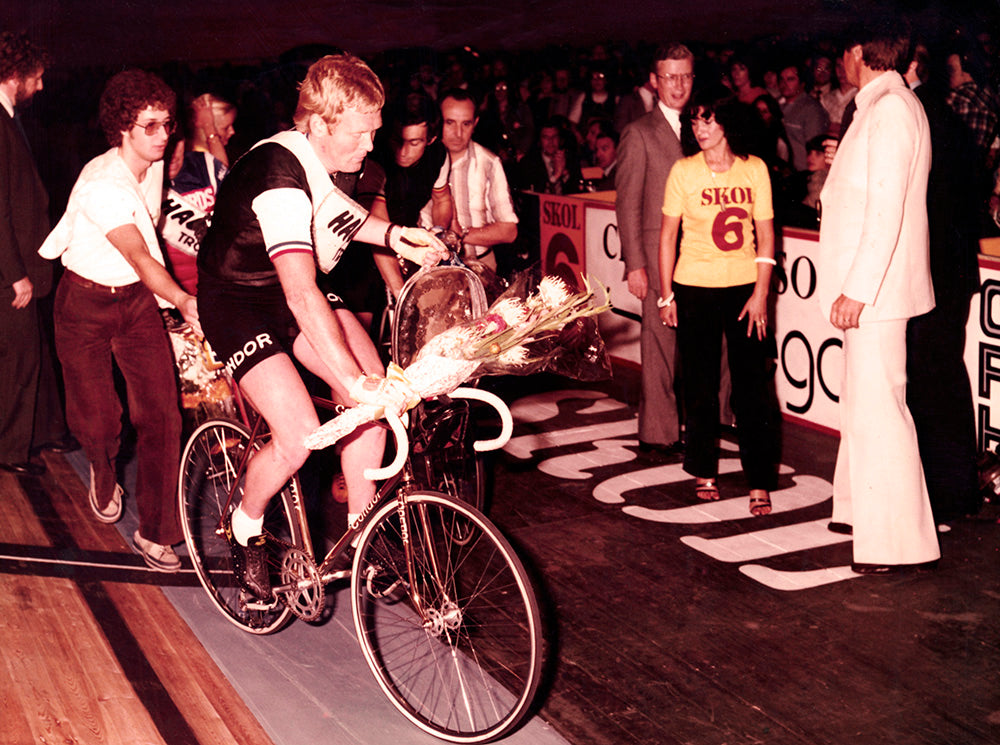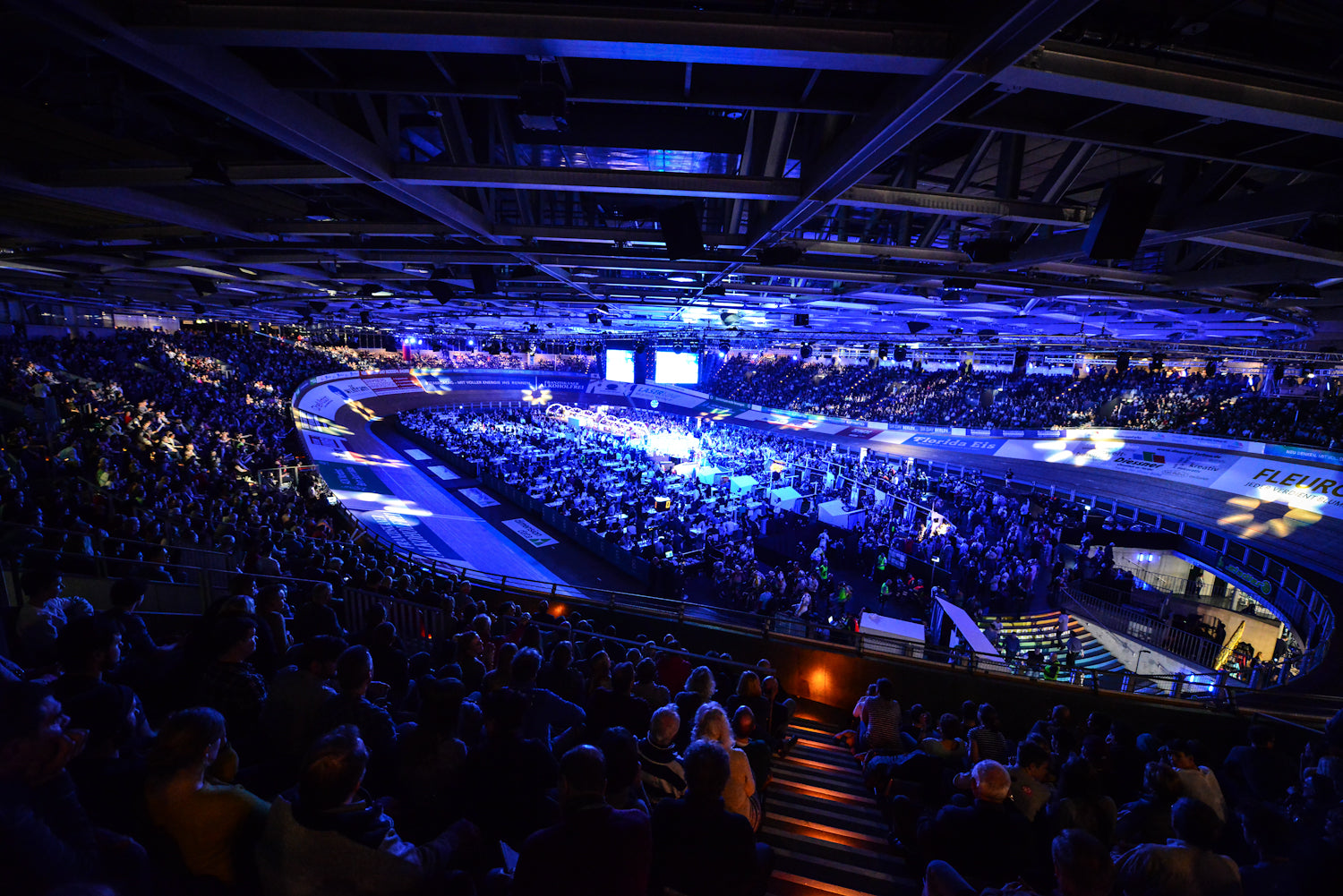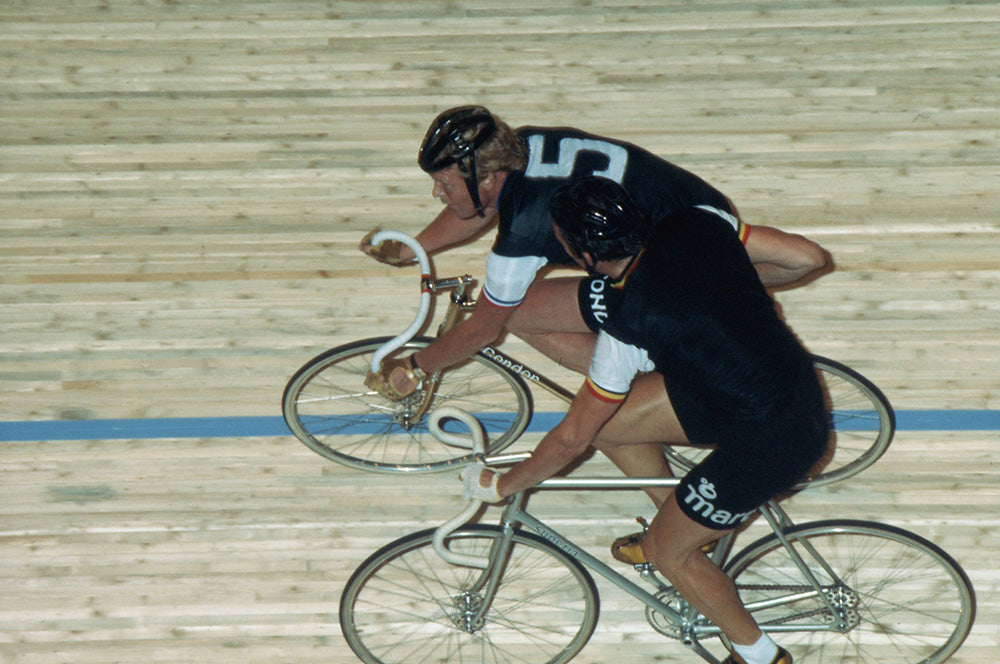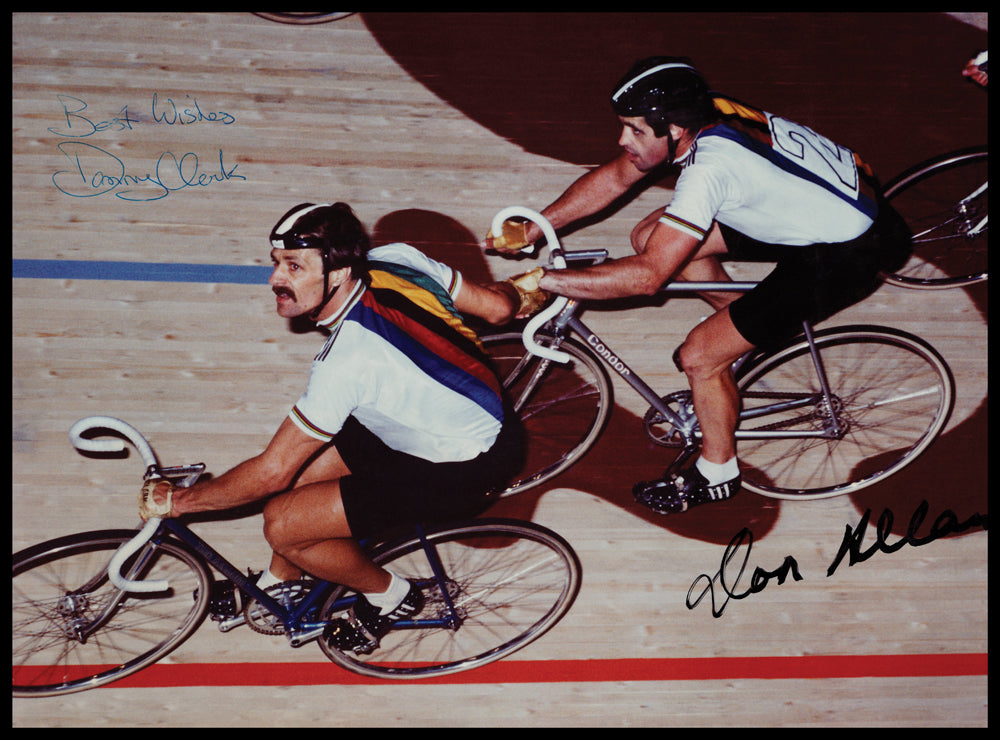"I remember they built a 160m long track and fitted into Wembley Arena. Those were fun days, there was such a buzz about the track”

“The last time the six-day was in London was 1980. It was sponsored by Skol beer and thus named the Skol 6. I remember they built a 160m long track and fitted into Wembley Arena. Those were fun days, there was such a buzz about the track”, explains Grant Young who, when six-day returned to London in 1967, he was just a boy.
From then on he was hooked and helped Condor riders at all the London six day events through the seventies.
Since the demise of the Wembley event over thirty years ago, attempts have since been made to relaunch a six-day in the capital; in June 2008, then Prime Minister, Gordon Brown, announced plans for a cycling festival that would feature six-day racing. Alas, a turbulent economic climate halted the project.

More popular than baseball
It was in fact London that lays claim to creating the concept of six-day racing. In 1878 at London's Royal Agricultural Hall (now the Business Design Centre), Sporting Life newspaper backed a wager that cyclist David Stanton could not ride 1,000 miles in six days. Stanton won the £100 bet and in no more than a few days the publicity created by the challenge led to another six-day race to be organised, this time for a field of 12. Yorkshireman Bill Cann walked away as winner of the world’s first six-day race.
Six-day racing soon crossed the Atlantic and soared in popularity. It became the most popular pre-war spectator sport in the USA – more than baseball, basketball and American football combined. Every state has a temporary track, such as Boston, Chicago, and Pittsburgh, but the most celebrated venue was New York’s Madison Square Garden, where a technique to sling your team mate into the race – to swap the racing rider – was invented. Thus, the Madison was born.
Condor wins at the Skol 6
Six-day was reintroduced in 1967 at Earls Court and Condor signed up to support the event.
“We sponsored a track rider, Tony Gowland, who was very good and when the six-day came to London he would be one of the stars. Usually organisers would pair him with a big name, like Patrick Sercu.”
Belgian born Sercu became the most successful six-day rider, eventually making a career out of it. He and Gowland (on a specially made gold Condor track bike) won the London six in 1972.

“We had lots of big names race for Condor in the Skol 6. Danny Clarke and Don Allan were a dominant pair. Don was such a star; he equalled Merckx with 16 wins in the six-day. We became good friends with him and he always rode Condor at the six.”
Grant remembers the racing fondly but as a teenager recalls being the dogs body. “Gosh, those six days were so hard; I was just as tired as the riders. Every night I wouldn't be home until the early hours. I had to wash them, feed them, look after their every need. Get them on the bike, get them off the bike, push them off.”
The last pair to claim victory in London were the Condor duo of Don Allen and Danny Clarke, pictured below, resplendent in World Champion jerseys.

Six Day Short Lived Return
Six Day racing is returned to its place of birth, London, in October 2015-2018